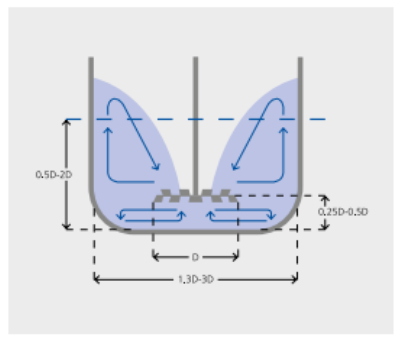Enhanced TDS
Identification & Functionality
- Chemical Family
- Chemical Name
- Manufactured By
- Technologies
- Product Families
- Product Composition
Ethylene vinyl acetate copolymer wax dispersion (EVA)
Applications & Uses
- Markets
- Applications
- Compatible Substrates & Surfaces
- Coating End Applications
- Use Level
- 40 - 70% additive (based on a solid binder)
- Product Applications
Coatings Industry
Special Features and Benefits
The additive improves the orientation of effect pigments (aluminum, mica etc.), reduces large-scale clouding and minimizes short-wave defects (mottling, Bénard cells). It enhances the flip-flop effect and improves the leveling of the subsequent clear coating. Due to the special rheological properties of CERATIX 8561, it also reduces the settling of the effect pigments in the container and in the circulation pipe.
Recommended Use
The additive is recommended for all solvent-borne base coats and one-coat top coats with effect pigments.- Automotive coatings
- Industrial coatings
- Leather coatings
Recommended Levels
40-70% additive (as supplied) based on a solid binder. The above recommended levels can be used for orientation. Optimal levels are determined through a series of laboratory tests.
Incorporation and Processing Instructions : The wax additive must be homogenized with a dissolver (4 m/s) prior to use and then added to the binder solution under agitation. In systems with CAB, the CAB solution must first be incorporated homogeneously in the binder solution at high shear forces (> 5 m/s) before the stirred wax additive, the effect pigment slurry and the solvents can be added under agitation.

Special Note
CERATIX 8561 is the NMP (N-Methyl-2-pyrrolidone) -free variant of CERATIX 8461. CERATIX 8563 and CERATIX 8566 are two other NMP-free wax additives which are very similar to CERATIX 8561. CERATIX 8563 is more polar than the other two, and CERATIX 8566 is aromatic-free. Choosing the most suitable CERATIX type depends on the polarity of the base coat and of the clear coat. The choice can be determined by carrying out comparative testing.
Properties
- Physical Form
- Typical Properties
Value Units Test Method / Conditions Viscosity (at 23°C) ca. 16 mPa.s - Melting Point (Wax component) 105 °C - Flash Point 27 °C - Non Volatile Matter 4.7 % - - Solvents
Value Units Test Method / Conditions Xylene/butylacetate/n-butanol 3/6/2001 - - - SDS Physical and Chemical Properties
Value Units Test Method / Conditions Upper Exposure Limit 11.3 %V - Kinematic Viscosity (at 40°C) 36 mm²/s - Dynamic Viscosity 10 mPa.s - Immiscible In Water - - Density (at 20°C) 0.871 g/cc - Lower Explosion Limit 1 %V - Flash Point 81 °F 49 (Pensky-Martens), Closed Cup Initial Boiling Point 244 °F - Odor Solvent-like - - Appearance White liquid, dispersion - - - Special Note
Special Note
Test method: Seeding
The wax additive is homogenized with a dissolver for 5 min at 4 m/s, then diluted with 20% n-butylacetate and stirred for a further 2 min at about 4 m/s. A draw down is then made on a glass panel with a 100 μm doctor blade. The result must be clear and free from seeds during drying.
Test method: Particle size measurement with a grindometer according to ISO 1524
The wax additive is homogenized with a dissolver for 5 min at 4 m/s. A draw down is then made on a 50 μm grindometer. Result: 20 μm particle size.- Compatibility
Ethylene vinyl acetate copolymer wax dispersion (EVA)
Regulatory & Compliance
- Chemical Inventories
Packaging & Availability
Storage & Handling
- Storage Information
Temperature sensitive. To be stored and transported at a temperature below 35°C. Mix well before use.
